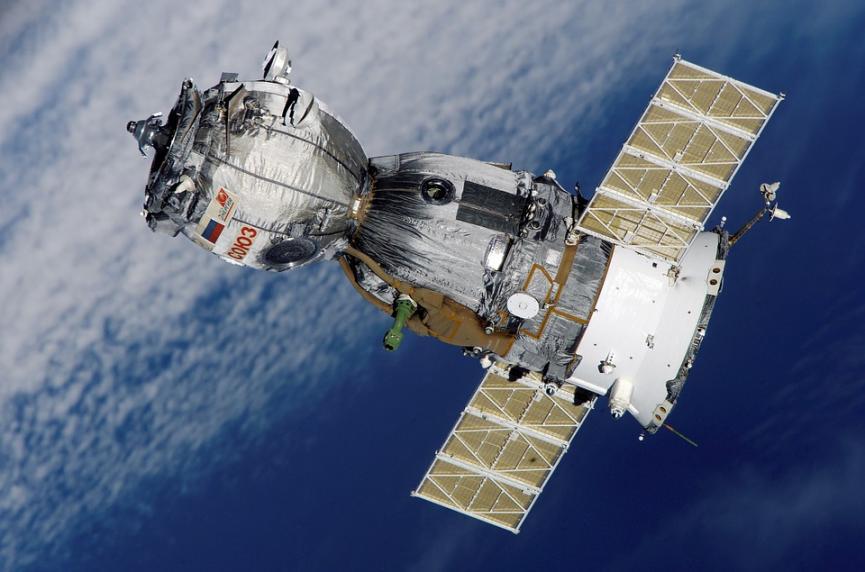Japanese companies are planning a variety of projects to be executed in the vastness of space.
A private satellite that will artificially generate shooting stars, the first of its kind in the world, was launched Friday. Other private-sector development projects, such as satellites designed to collect space debris and a lunar probe, are in the works.
With such innovative ideas, a new era of Japanese development in space is set to begin.
Over the Seto Inland Sea
A multicolored array of artificial shooting stars, some orange, others green and blue, blaze in Japan’s night sky. This magnificent display is what ALE Co., a Tokyo-based space venture company, plans to realize, using a small-sized satellite.
Shooting stars are actually space dust. As the dust enters Earth’s atmosphere at incredible speed, it furiously collides with molecules in the atmosphere, generating intense heat. This phenomenon is known as aerodynamic heating, which causes the dust to glow.
The world’s first artificial shooting star show is planned for spring 2020 and will likely be visible in the Chugoku and Shikoku regions, mainly over the Seto Inland Sea.
Plans for the event include the release of 20 specially designed “particles” around 1 centimeter in diameter to act as space dust from an altitude of about 390 kilometers from Earth. The particles will glow for three to 10 seconds at altitudes of 60 to 80 kilometers in the air, at a luminosity of around minus 1. This is approximately the same brightness as Sirius, the brightest star in the night sky.
The particles will be made of different materials, resulting in different-colored glows, and the entire show is planned to last for roughly one minute.
The company was founded in 2011 by CEO Lena Okajima, who studied astronomy at the University of Tokyo. Okajima is enthusiastic about the company’s mission.
“We hope to deploy artificial shooting stars for ceremonious events and theme parks all over the world,” she said. “By forming a connection between science and society, we’re working to open up the new field of space entertainment.”
Business chance
There is a massive amount of satellite fragments and other space debris in outer space near Earth. They are moving at very high speeds, so they could cause serious accidents if they collide with the International Space Station or other apparatus.
Astroscale Pte. Ltd., a new start-up with a development base in Tokyo, is developing a satellite that will use a powerful magnet to recover debris. The launch of a prototype is planned for 2020.
CEO Chris Blackerby said no one has solved the problem of space debris, and this is a business opportunity.
Tokyo-based company ispace Inc. is planning the first-ever private sector lunar probe project, with plans to land its own rover on the surface of the moon in 2021. The U.S. National Aeronautics and Space Administration (NASA) is developing plans to outsource the transport of materials and scientific equipment for lunar exploration to private companies, and it has been decided that ispace will participate as a member of a candidate team.
In anticipation of rising demand for satellite launch services, two companies are beginning to develop their own rockets — Interstellar Technologies Inc., based in Hokkaido, and Space One Co., Ltd., based in Tokyo, the latter of which is financed by companies including Canon Electronics Inc. The companies are also eyeing the construction of new launch sites.
Government backing
In March 2018, the government set a goal to jointly invest with the private sector approximately ¥100 billion in space start-ups over five years, and the financing has already begun. In November, the space activities fully came into force, providing the legal underpinnings for the launching of artificial satellites and establishment of new launch sites.
The law stipulates that the government will bear partial responsibility for the payment of damages if a company-launched rocket crashes and causes damage to the surrounding area, a provision designed to encourage development of the industry.
In the United States, NASA has been active in outsourcing space-related projects to the private sector, leading to the rapid growth of start-up companies like SpaceX that can launch rockets at a low cost. With the success of the space business in the United States, investors and financial institutions in Japan have also begun investing in space-sector businesses, making the field more accessible even to smaller companies.
“More than 20 start-ups have been founded in Japan already,” says space business consultant Misuzu Onuki. “The vitality and the funding of the private sector is being introduced into the world of space development. There will be a succession of new space development projects within the next few years.”Speech

